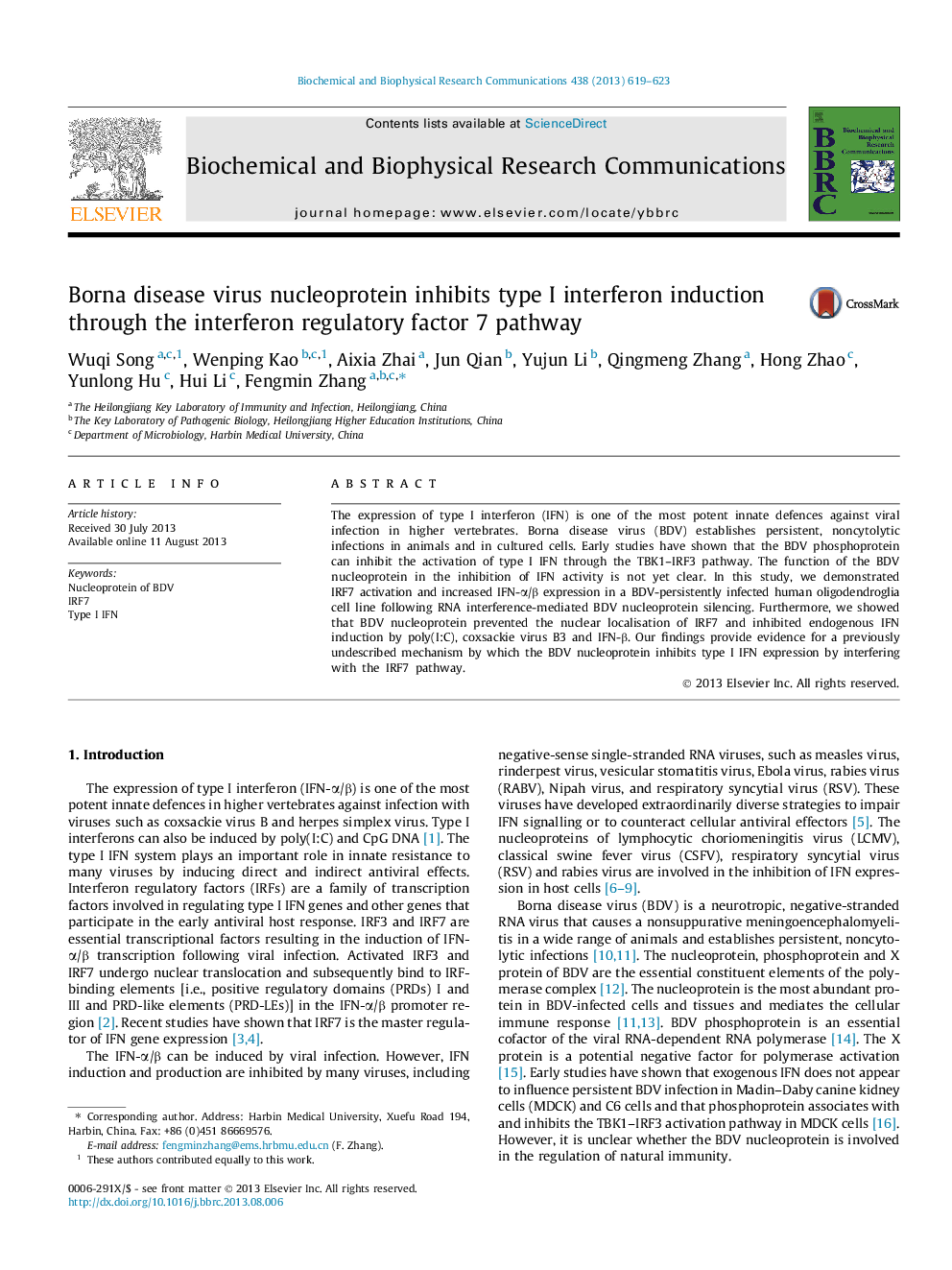| Article ID | Journal | Published Year | Pages | File Type |
|---|---|---|---|---|
| 10757923 | Biochemical and Biophysical Research Communications | 2013 | 5 Pages |
Abstract
The expression of type I interferon (IFN) is one of the most potent innate defences against viral infection in higher vertebrates. Borna disease virus (BDV) establishes persistent, noncytolytic infections in animals and in cultured cells. Early studies have shown that the BDV phosphoprotein can inhibit the activation of type I IFN through the TBK1-IRF3 pathway. The function of the BDV nucleoprotein in the inhibition of IFN activity is not yet clear. In this study, we demonstrated IRF7 activation and increased IFN-α/β expression in a BDV-persistently infected human oligodendroglia cell line following RNA interference-mediated BDV nucleoprotein silencing. Furthermore, we showed that BDV nucleoprotein prevented the nuclear localisation of IRF7 and inhibited endogenous IFN induction by poly(I:C), coxsackie virus B3 and IFN-β. Our findings provide evidence for a previously undescribed mechanism by which the BDV nucleoprotein inhibits type I IFN expression by interfering with the IRF7 pathway.
Keywords
Related Topics
Life Sciences
Biochemistry, Genetics and Molecular Biology
Biochemistry
Authors
Wuqi Song, Wenping Kao, Aixia Zhai, Jun Qian, Yujun Li, Qingmeng Zhang, Hong Zhao, Yunlong Hu, Hui Li, Fengmin Zhang,
